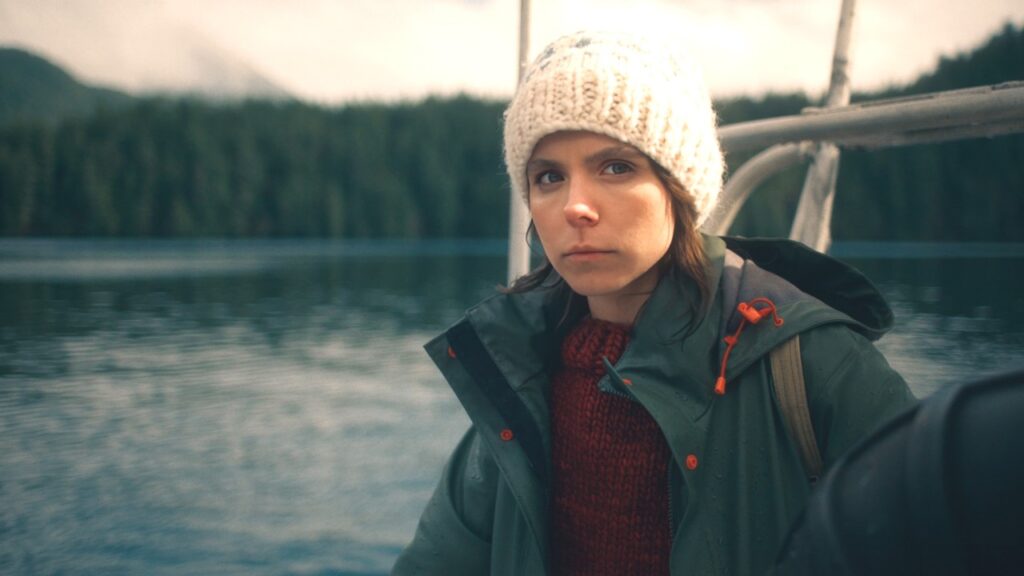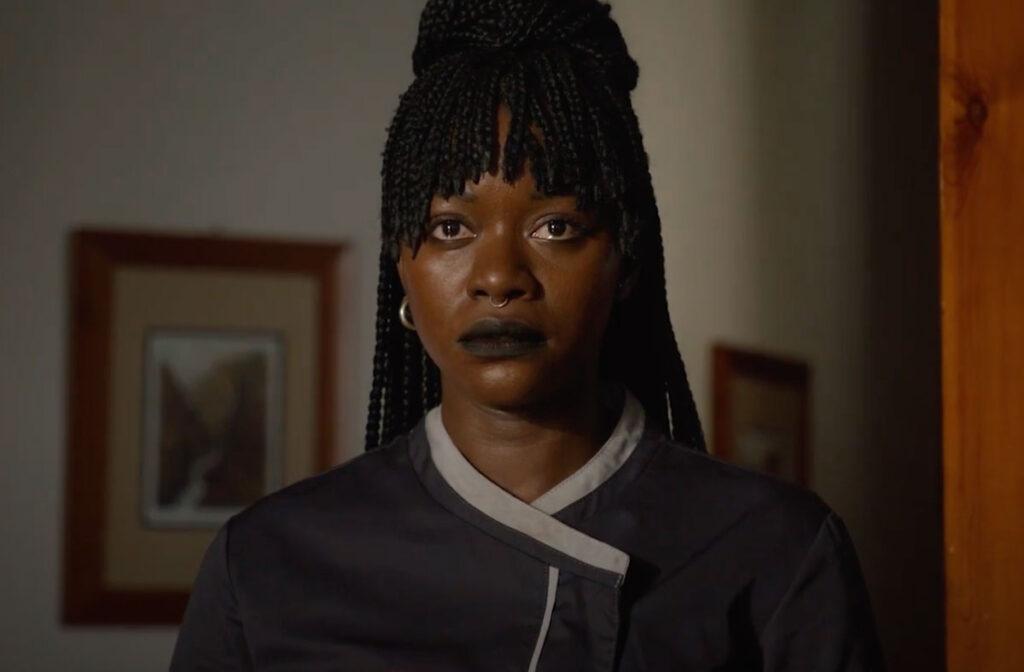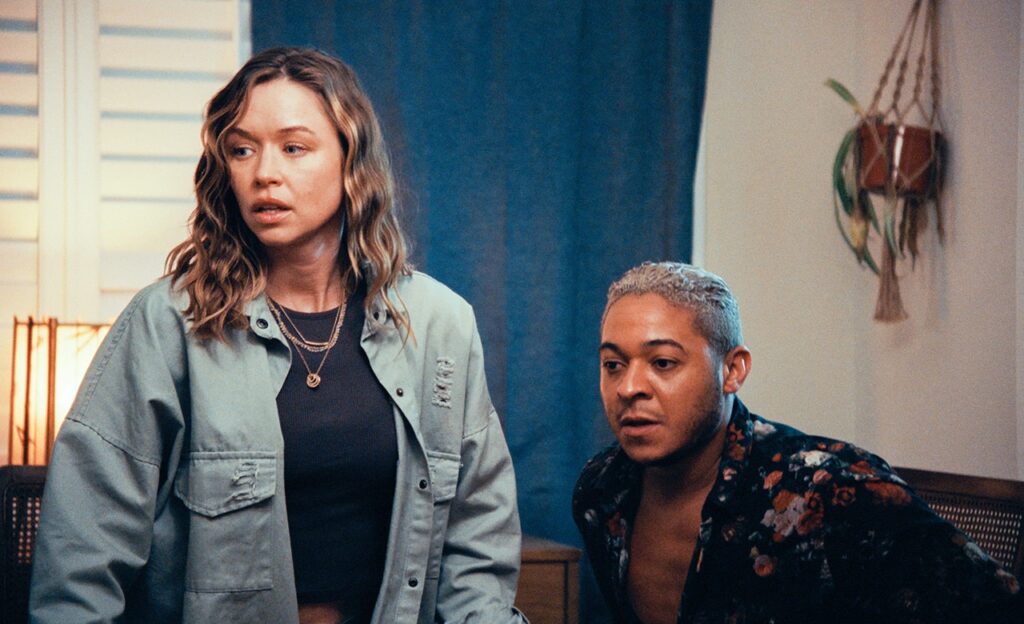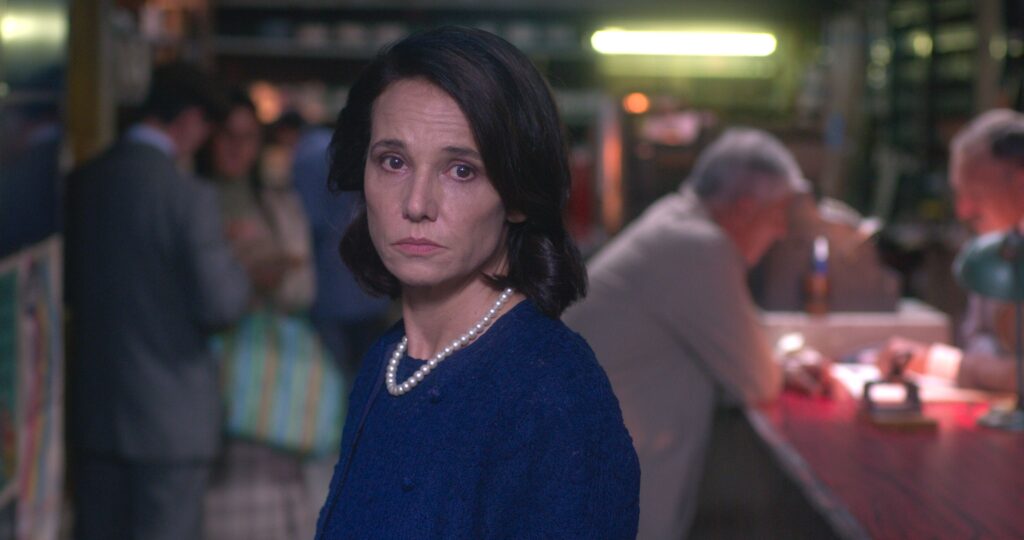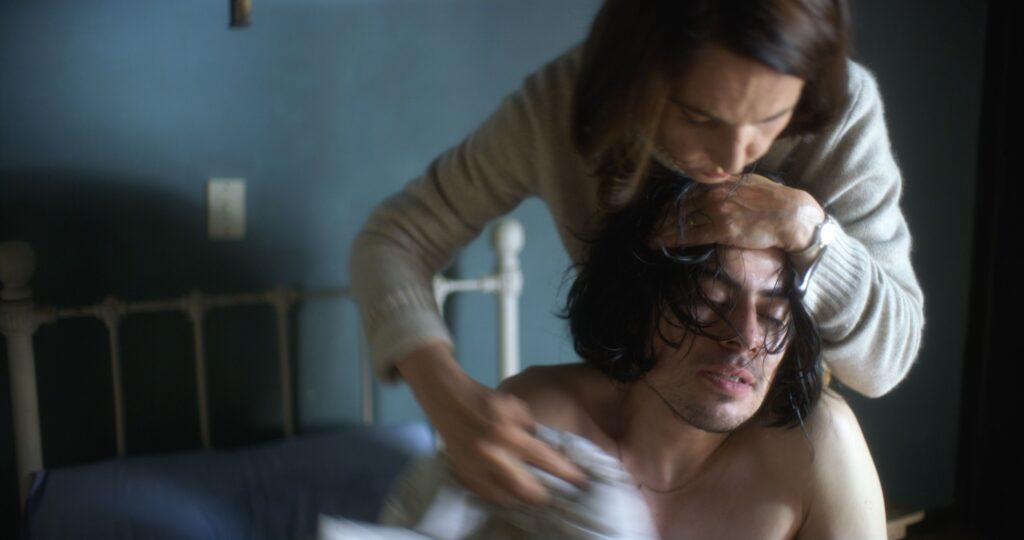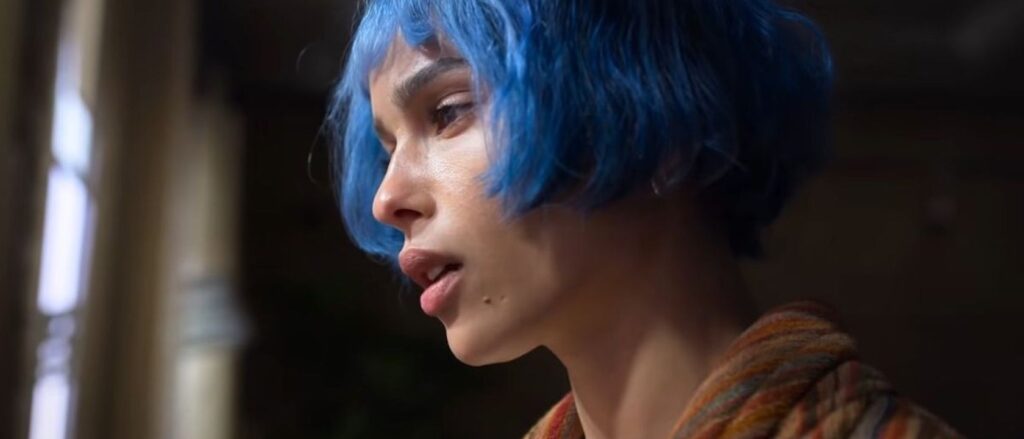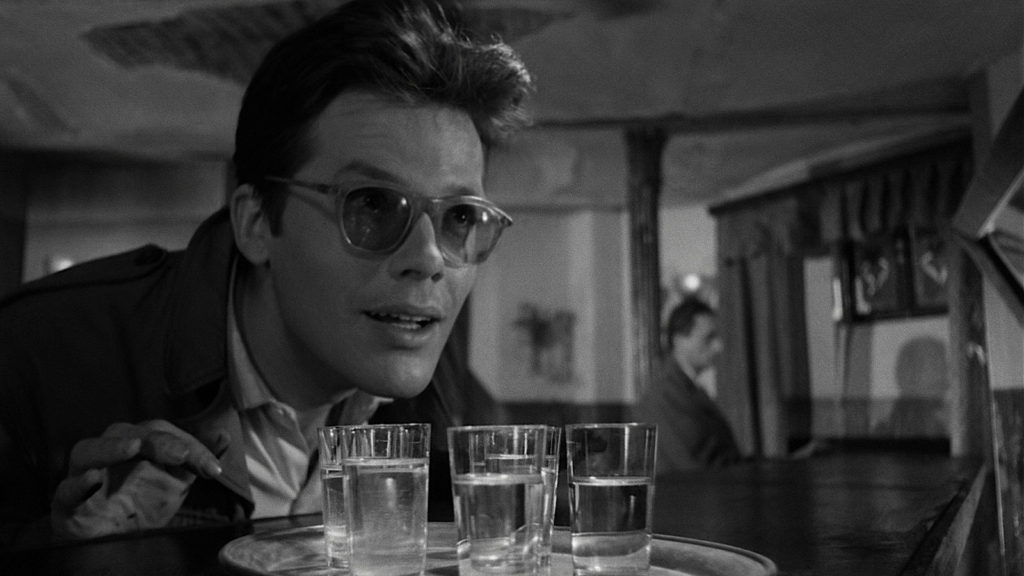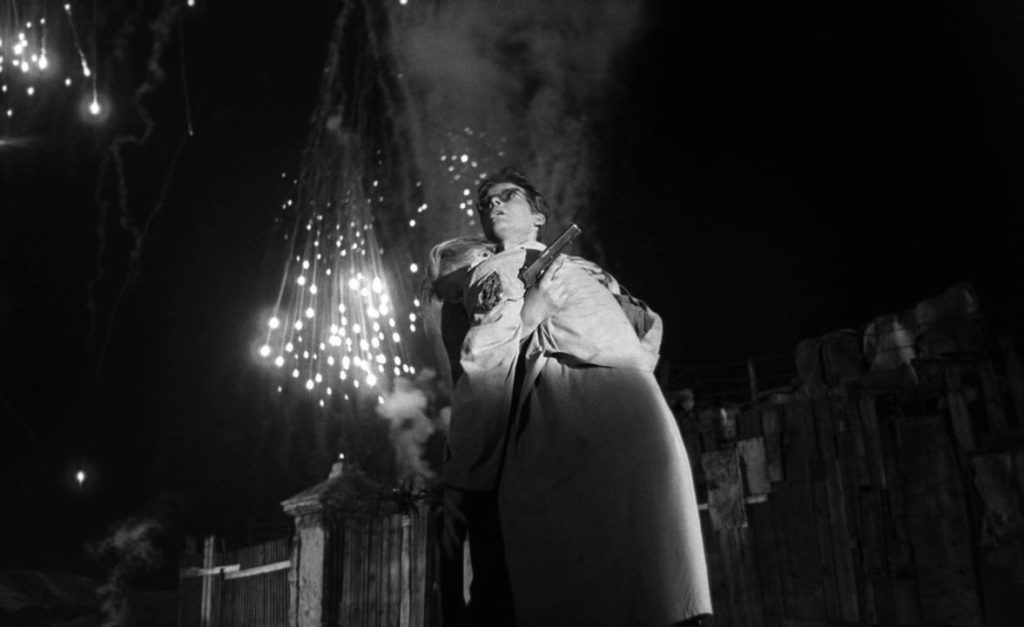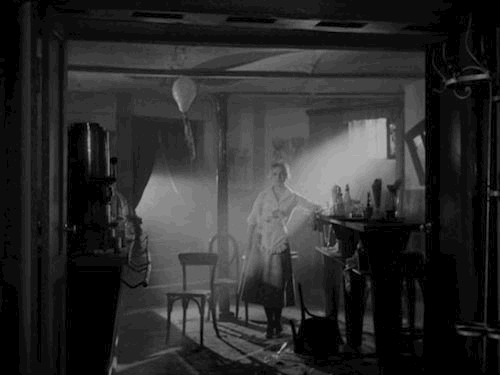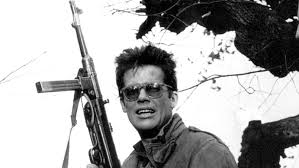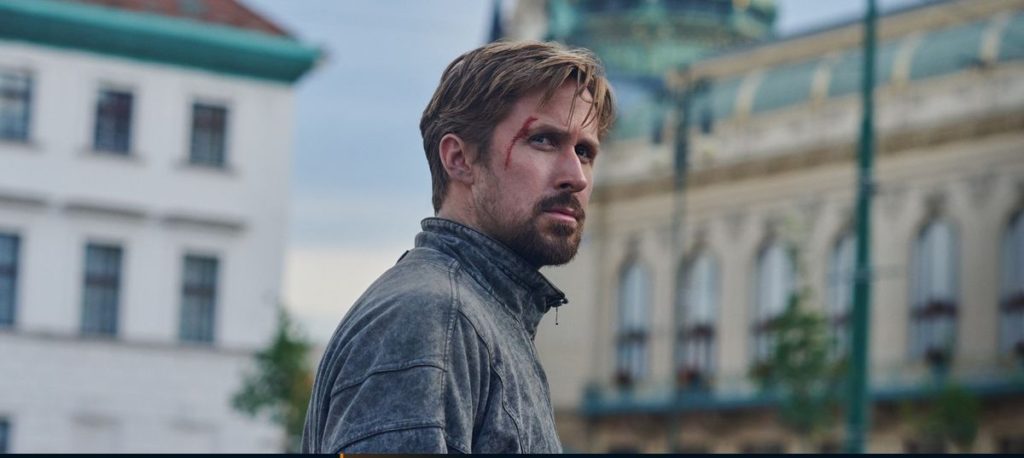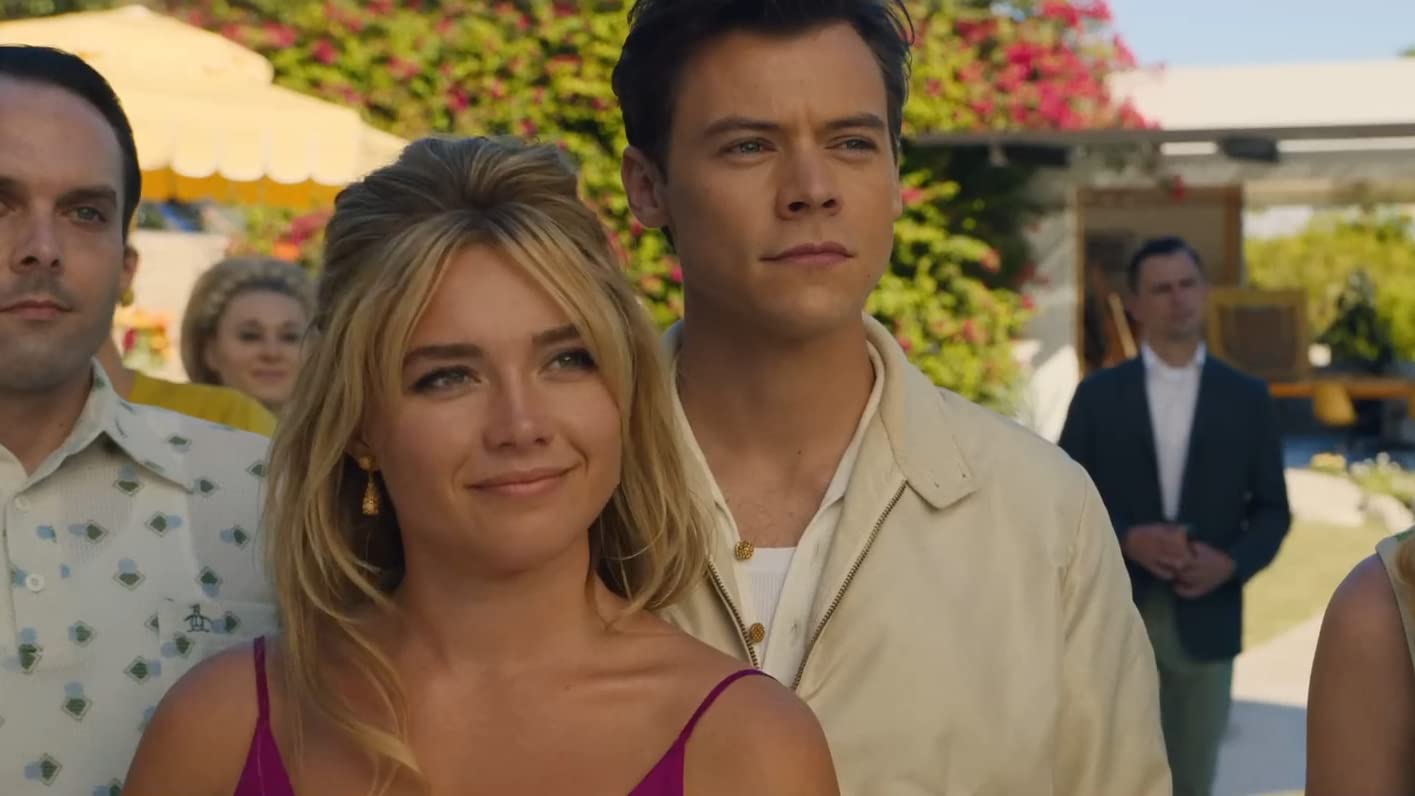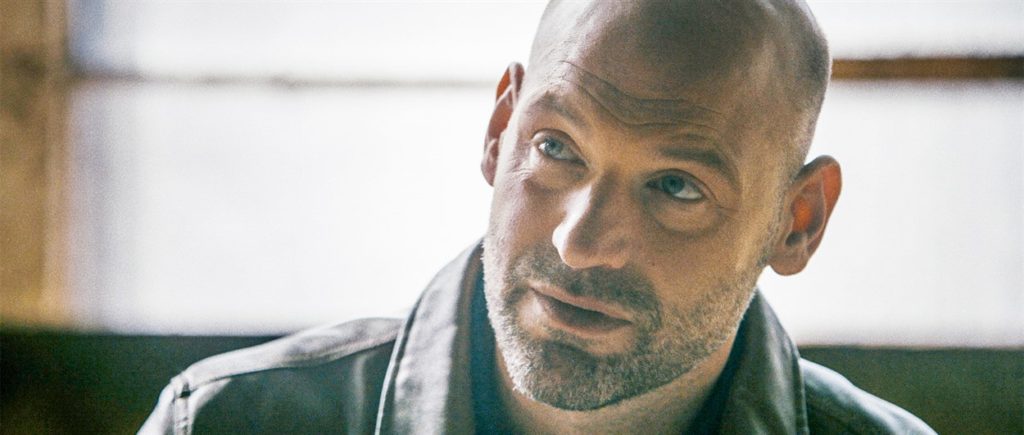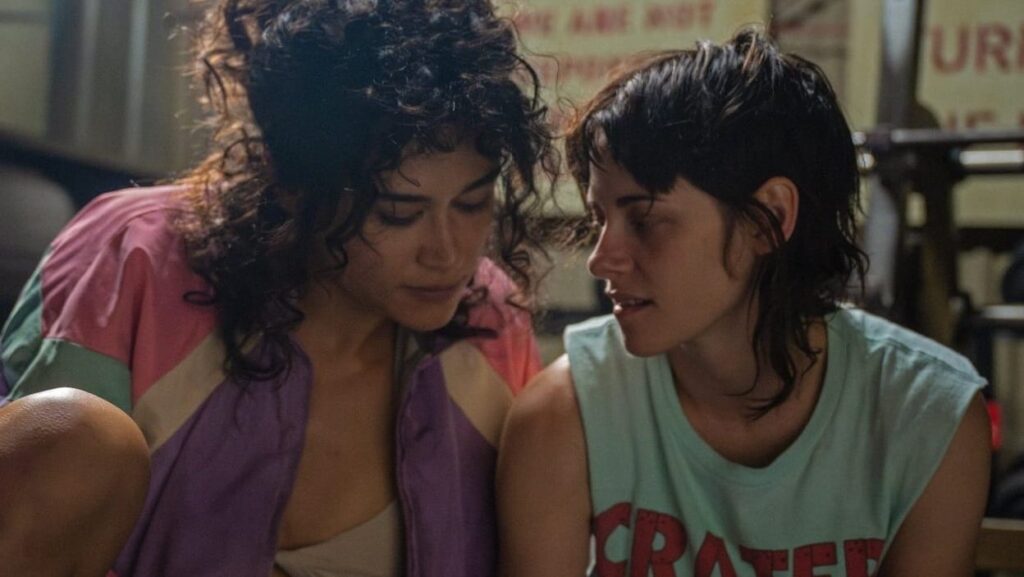
Love Lies Bleeding is a title that legendary film noir director Sam Fuller would have loved, and this highly original neo-noir is a knockout. Kristen Stewart plays Lou, the reluctant manager of a downscale fitness gym in a hardscrabble New Mexico town that is flat, arid and devoid of culture. Love Lies Bleeding may be set in and shot in New Mexico, but this town is not anybody’s Land of Enchantment.
Lou is wallowing through the drudgery of her job, when she eyes Jackie (Katy O’Brian), an aspiring bodybuilder who has just drifted into town. This moment evokes the one in which John Garfield first sees Lana Turner in The Postman Always Rings Twice. The two plunge into a passionate affair, and Jackie, who has snagged a job on her first day in town but is still homeless, moves in with Lou.
But soon, the two find out that Jackie has already become entangled with two folks who are important in Lou’s life – and not in a good way. There’s an impetuous homicide and a “perfect crime” cover-up. Unfortunately, an inconvenient witness, a steroid binge, and more impulsiveness threaten to unravel their lives. Love Lies Bleeding hurtles down an alley filled with robust sex, sudden violence and witty observation.
I will not spoil the ending except to say that, just as I was thinking, “this could go one of three ways”, it went in a totally unexpected direction. And, as I was thinking that writer-director Rose Glass was pivoting completely away from noir conventions, she ends the film with one of the most noirish lightings of a cigarette ever. This is only Glass’s second feature, co-written with Weronika Tofiska. Glass’ 2019 debut feature, St. Maud, earned some buzz.
Like many noirs, this is a tale of obsessions, and it’s a character-driven one, contrasting Lou and Jackie. Lous is measured and intentional, and we learn that her prioritization of loyalty has kept her in this place. Loyalty, and pretty much everything else, is situational for Jackie, whose unfocused wanderlust is another symptom of her captivity to her impulses. Lou is obsessed with Jackie. Jackie is obsessed with reinventing her life, through bodybuilding, through sex, through the next shiny thing.
Kristen Stewart is just so watchable, as she was when I first saw the 17-year-old Stewart in as Tracy in 2007’s Into the Wild. Stewart then bit her lower lip through the Twilight franchise, and, now about to turn 34, is at the top of her game. Stewart is fearless in her choice of scripts and likes to bet on interesting directors. She’s just perfect as Lou in Love Lies Bleeding.
This is the first time I’ve seen Katy O’Brian, and there’s just no getting around that she doesn’t look like most other movie actresses. She’s a martial arts instructor who doesn’t rely on her physicality alone, but uses it to great advantage. O’Brian captures Jackie’s supreme confidence (except when her family rejection bubbles to the surface, and how she is capable of one of the epic steroidal rages. She’s already amassed 27 IMDb credits, including a recurring role on The Mandalorian.
If you’re casting a villain with steely and contained determination, who better than four-time Oscar nominee Ed Harris? Harris comes through as expected, and Glass wittily puts him in a bald-on-top stringy wig that evokes Riff Raff in The Rocky Horror Picture Show. She also gives the character a disgusting interest in bugs.
The rest of the cast is very good, too, including Dave Franco, Jena Malone and Anna Barishnikov, who must be pretty intelligent to play such a profoundly dumb character with such intricacy.
Their obsessions drive Lou and Jackie together in Love Lies Bleeding, and it’s a volatile mix with a wowzer ending.

